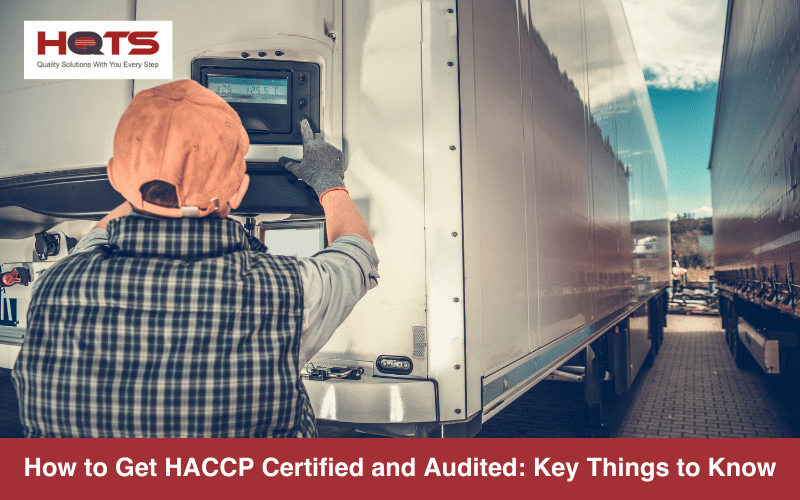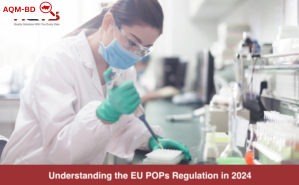The Hazard Analysis and Critical Control Point (HACCP) certification is a food safety certification that demonstrates your business’s commitment to food safety, using an evidence-based approach. This international standard for food safety is widely used in the food industry and can be an effective entry-to-market tool, opening up a variety of business opportunities.
In this guide, you’ll find everything you need to know about the HACCP certification and HACCP audits. You’ll learn how it works, why it is important, and how third party audit HACCP services can help your organisation.
What Is HACCP Certification?
HACCP stands for Hazard Analysis Critical Control and is an important management system and standard for food quality control that helps businesses to identify and control the hazards in food processing. These hazards range from physical, biological, and chemical, and cover a wide spectrum of areas, including:
- Production Line
- Manufacturing
- Distribution
- Consumption of Food
The certification functions as a form of approval system, whereby the certification recognizes that the food processor or the manufacturer has developed, documented, and implemented systems according to the HACCP standard.
What Are the Seven Principles of a HACCP Plan?
There are in total seven steps to creating a HACCP plan. You’ll find a simplified version below. To read the complete guide for each step, refer to the U.S. FDA full HACCP Plan version.
HACCP Principle 1: Conduct a hazard analysis
Identify a list of hazards that could cause injury or illness if they are not controlled. These could include anything from raw materials, processing equipment, packaging materials, and transportation vehicles to the employees’ skillset level. Then determine which of these factors can influence the severity of the hazard being controlled, followed by a list of what measures are needed to control the hazard.
HACCP Principle 2: Determine the critical control points
A critical control point (CCP) is located at any step where the hazard can be prevented or eliminated to be reduced to an acceptable level. These could include chilling, re-heating, thermal processing, testing product for metal contaminates, and more. All CCPs must be documented.
HACCP Principle 3: Establish critical limits
The critical limit helps to control biological, chemical, or physical parameters at the CCP. Each CCP should have at least one or more control measures, which are associated with at least one critical limit. Examples of critical limits include salt concentration, temperature, time, moisture level, and water activity (aw).
HACCP Principle 4: Establish monitoring procedures
The monitoring plan includes measuring or observing whether the CCP is under control and keeping a record of it for future verification purposes. If a critical limit is not being met, then it is essential to take immediate action to bring the process back into control.
HACCP Principle 5: Establish corrective actions
Corrective actions are those actions that will be taken when there is a deviation from the established critical limits. It is important to note that these actions should be prepared in advance for each CCP.
HACCP Principle 6: Establish verification procedures
The verification procedures are those activities other than the ones outlined in principle four, that will determine the validity of the HACCP plan and whether the system is operating according to the plan.
HACCP Principle 7: Establish record-keeping and documentation procedures
The last principle deals with the record-keeping and documentation procedures. In general, these should be simple to complete and contain all mandatory information. Including a summary of the hazard analysis, rationale for determining hazards and control measures, a list of the HACCP team and their responsibilities, and more. View an example of a HACCP record here.
Why is HACCP Certification Important?
This certification is important because it demonstrates and recognizes that a business has developed a food management system for identifying potential hazards in food production, and how to eliminate and prevent these risks from occurring in compliance with HACCP principles.
The benefits of HACCP Certification include:
- Increase Market Access – It can increase your market access opportunities as certain customers, and local and international markets can have the HACCP as a requirement.
- Better Reputation – The HACCP can improve its reputation, as it is one of the most well-known international standards for food safety, and reduce the risk of incidents related to food hazards.
- Increase Trust – Your customers, clients, and stakeholders will have greater trust in your food handling and processing systems, as you follow the best standards. The certification is also beneficial when you’re inspected by regulatory authorities.
How to Get the HACCP Certification
HACCP certification is best thought of as a process, with several steps that require planning and commitment. It is advisable that your employees undergo HACCP training, or engage external food safety consultants to understand the requirements of the HACCP fully and to develop a HACCP plan.
To be able to get HACCP certified, you will have to pass a HACCP audit by an external third party certification authority.
What Is a Third Party Audit HACCP?
Third party audits are critical to maintaining a HACCP system. These HACCP audits are conducted by a third party audit company, like us at AQM BD, and give an independent assessment of the HACCP system in place by a food manufacturer or retailer, as well as an assessment of whether the product is fully HACCP compliant.
At AQM BD, we provide third party HACCP audit services to evaluate the establishment and maintenance of a HACCP system. Our audit is conducted under the five preliminary steps and seven principles of the HACCP system. During the auditing process, the food safety auditor will evaluate the actual HACCP management conditions and improve the HACCP management level, and enhance your food safety management and product quality. To learn more, view our free food safety audit report.
Conclusion: How to Get HACCP Certified and Audited: Key Things to Know
The Hazard Analysis and Critical Control Point (HACCP) certification is an international standard for food safety that demonstrates that your business has developed a thorough food management system for identifying, eliminating, and preventing potential hazards following the HACCP principles.
AQM BD is a HACCP third party audit company that can help you audit your HACCP procedures and systems. Our comprehensive audit for HACCP spans from hazard analysis to validation of implementation effectiveness of HACCP activities, and more. Book your food safety audit today.





